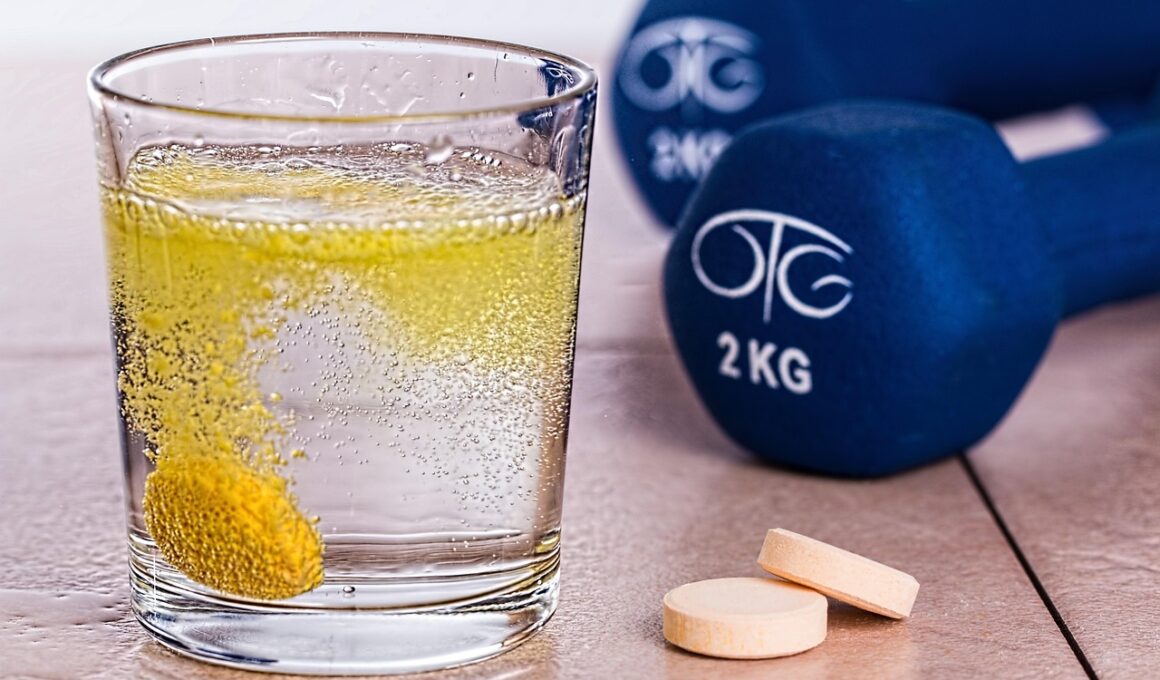Recovery Drink Ingredients: What Really Helps You Rebuild?
After a rigorous workout, your body needs to recover efficiently, and the right recovery drink can make a significant difference. Many consumers are confused by the plethora of recovery drinks available on the market. Understanding the key ingredients can help in making informed choices. Common components in recovery drinks include proteins, carbohydrates, fats, vitamins, and electrolytes. Protein is essential for muscle repair and growth, while carbohydrates replenish glycogen stores depleted during exercise. Fats play a crucial role in systemic recovery, although they should be consumed in moderation. Vitamins, including B-vitamins, support energy metabolism, while electrolytes, like potassium and sodium, prevent dehydration. Choosing recovery drinks with high-quality protein sources like whey or plant-based proteins can maximize muscle recovery. Look for drinks with a ratio of 3:1 carbohydrates to proteins to optimize glycogen replenishment and muscle repair post-exercise. With the right combination of nutrients, your body will be better equipped to bounce back and perform even better in future workouts. Always check labels to ensure you’re selecting a healthy option tailored to your specific needs.
To further optimize post-workout recovery, consider the role of hydration. Proper hydration is crucial for muscle function, as even slight dehydration can hinder performance. Many recovery drinks incorporate electrolyte replenishment to combat the losses incurred during sweating. Ingredients such as sodium and potassium are essential as they help maintain fluid balance in the body. Additionally, replenishing magnesium and calcium can prevent muscle cramps and aid recovery. Some recovery drinks utilize Coconut water or other natural sources of electrolytes due to their effective balance of carbohydrates and electrolytes. Not only do these drinks promote hydration, but they also provide natural sugars that can help replenish energy stores. It’s important to remember that while supplements can enhance recovery, they shouldn’t replace a balanced diet. Whole foods still play an essential role in nutrition. Aim to consume a meal rich in proteins and carbs within two hours of exercising for optimal recovery. This combination aids in muscle repair and replenishment while maintaining energy levels for your next workout session.
Comparing Protein Sources
When comparing protein sources in recovery drinks, it’s essential to evaluate their effectiveness for muscle repair and recovery. Whey protein, derived from milk, is praised for its rapid absorption and high-quality amino acid profile. It’s particularly effective in stimulating muscle protein synthesis. However, not everyone can consume dairy, which leads many to explore plant-based options. Pea protein stands out as a popular alternative due to its high digestibility and excellent amino acid makeup. Both proteins can be included in post-workout drinks, depending on dietary needs and preferences. Brown rice protein is another alternative that, when combined with pea protein, can deliver a complete amino acid profile, making it ideal for vegetarians. Furthermore, you’ll want to consider added ingredients like BCAAs (branched-chain amino acids), which may help promote recovery and reduce muscle soreness. Ultimately, the choice of protein depends on individual needs and how your body responds to different sources. Conducting personal tests can help you determine which protein offers optimal benefits for your recovery routine.
Carbohydrates are just as critical in recovery drinks, serving as the primary source of energy replenishment after a workout. Following intense exercise, your muscles require carbohydrate intake to replenish glycogen stores. The effectiveness of recovery drinks often hinges on the carbohydrate content. Ideally, a drink should contain at least a 3:1 ratio of carbohydrates to protein. Best sources of carbohydrates include simple sugars and complex carbs. Simple sugars, such as dextrose or maltodextrin, are rapidly absorbed, providing immediate energy post-exercise. Meanwhile, complex carbohydrates help sustain energy levels for a prolonged period. Brands often infuse recovery drinks with fruits rich in natural sugars to enhance flavor and nutritional value. Ingredients like banana or berries provide both taste and essential micronutrients, along with carbohydrates. When analyzing recovery drinks on the market, be wary of those high in sugars without other nutritional benefits. A balanced approach to sugar intake can facilitate better recovery outcomes and support your overall fitness goals more effectively.
The Role of Fats in Recovery Drinks
Many athletes often overlook the role fats play in post-workout recovery drinks, but they are nonetheless important. Healthy fats, such as those found in avocado or nuts, can supply essential fatty acids that help in inflammation reduction. Contrary to what many believe, fats can also provide a good energy source during recovery. However, these should be consumed in moderation due to their high caloric content. A blend of omega-3 and omega-6 fatty acids in recovery drinks can help manage muscle soreness. While higher protein and carbohydrate ratios are important immediately after a strenuous workout, healthy fats can play a supportive role when consumed later. For instance, post-recovery snacks that include fats can contribute to overall nutrition and satiety. As you evaluate different recovery drinks, look for added sources of heart-healthy fats, as they can round out the nutritional profile, providing a well-rounded approach to recovery. Integrating these foods and drinks into a balanced diet reinforces recovery while setting you up for future workout successes.
Vitamins and minerals also play a vital role in enhancing recovery and overall health. Essential micronutrients help your body efficiently utilize the macronutrients found in recovery drinks. Vitamin D influences muscle function and may aid recovery when included in drinks. Meanwhile, B-vitamins contribute to energy metabolism and help in reducing fatigue. Look for drinks fortified with antioxidants such as vitamin C and E, which can help decrease oxidative stress after intense workouts. This can improve recovery times while boosting immune function. Additionally, minerals like zinc and iron play a crucial part in muscle recovery and overall health. Incorporating a variety of fruits and vegetables into your daily diet provides many of these essential vitamins and minerals, making them an ideal complement to recovery drinks. Assessing the nutrient content of recovery drinks can guide you to those that not only support muscle recovery but also boost your immune system and enhance your overall well-being.
Choosing the Right Recovery Drink
Selecting the ideal recovery drink is not solely based on its ingredients but also on individual dietary requirements and fitness goals. Consider what outcomes you’re aiming for—muscle repair, replenishing energy, or reducing inflammation. Evaluating labels and understanding the scientific basis behind the nutrition claims can empower better choices. Look for balanced drinks, combining carbs and protein for optimal recovery. It’s equally important to account for timing; you should consume your drink within the first 30 minutes post-workout to maximize recovery benefits. Additionally, consider testing different drinks to discover what resonates best with your body. Every person’s physiology and metabolism differ, so what works for one may not work for another. And don’t forget about flavor and convenience! Enjoying your recovery drink enhances adherence to your regimen. Also, blender-friendly options may allow flexibility for market limitations. In summary, be mindful of ingredient quality, nutritional balance, and personal preference when selecting your ideal recovery beverage after an intensive workout.
In conclusion, understanding recovery drink ingredients can significantly impact the effectiveness of your post-workout recovery. A well-formulated recovery drink should contain high-quality protein, sufficient carbohydrates, healthy fats, vitamins, and minerals combined for optimal results. By knowing what to look for, you can better select recovery drinks tailored to your personal preferences and health goals. The choices available can feel overwhelming, with varying claims and labels. Hence, staying informed is crucial in navigating this market. Remember to maintain a balanced approach and consider integrating real food alongside recovery drinks. Nutrition is a combined effort and understanding your unique needs will ensure overall wellness and performance improvements in future workouts. Commit to giving your body what it needs for optimal recovery, so you can return stronger than ever. Embrace this journey as part of a holistic approach to fitness and nutrition. With the right knowledge and dedication, recovery can become one of your greatest allies in achieving peak performance.


